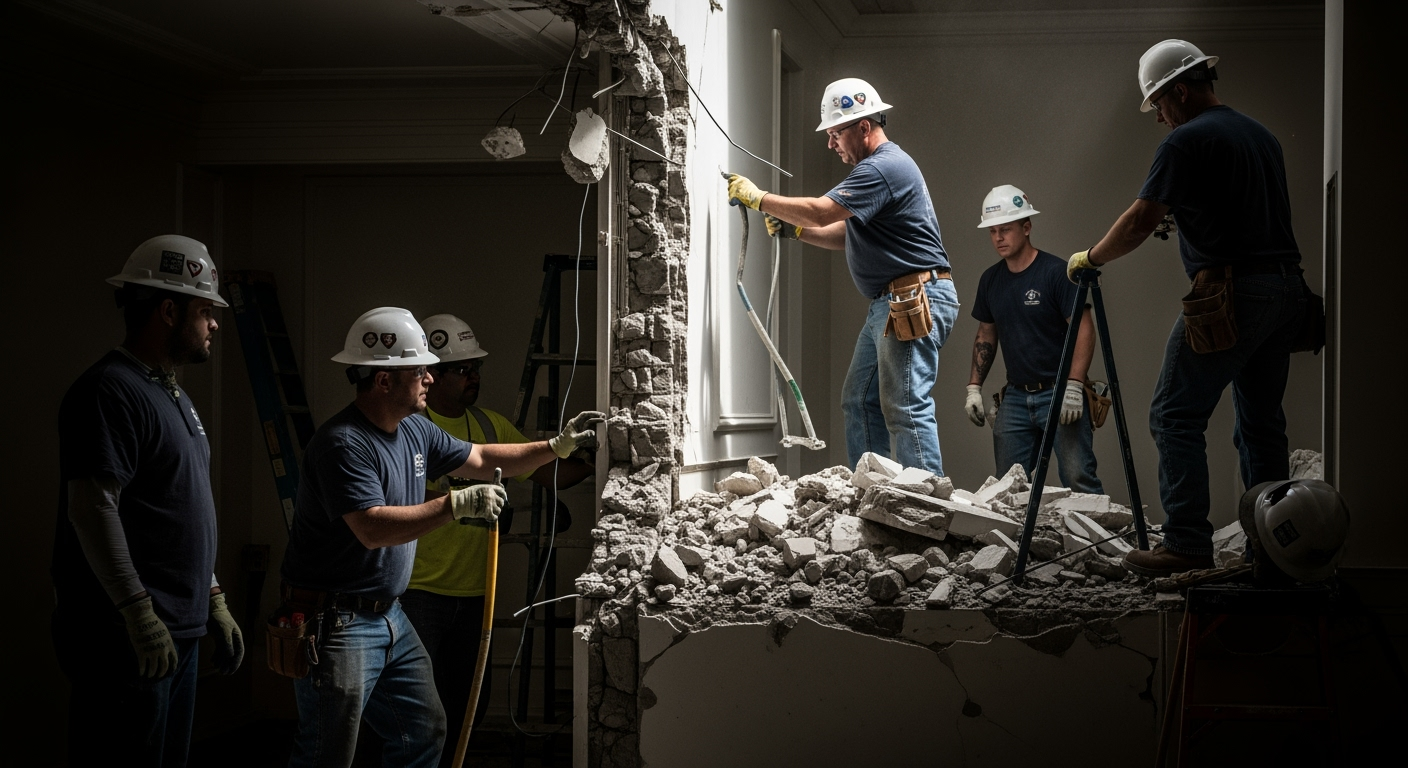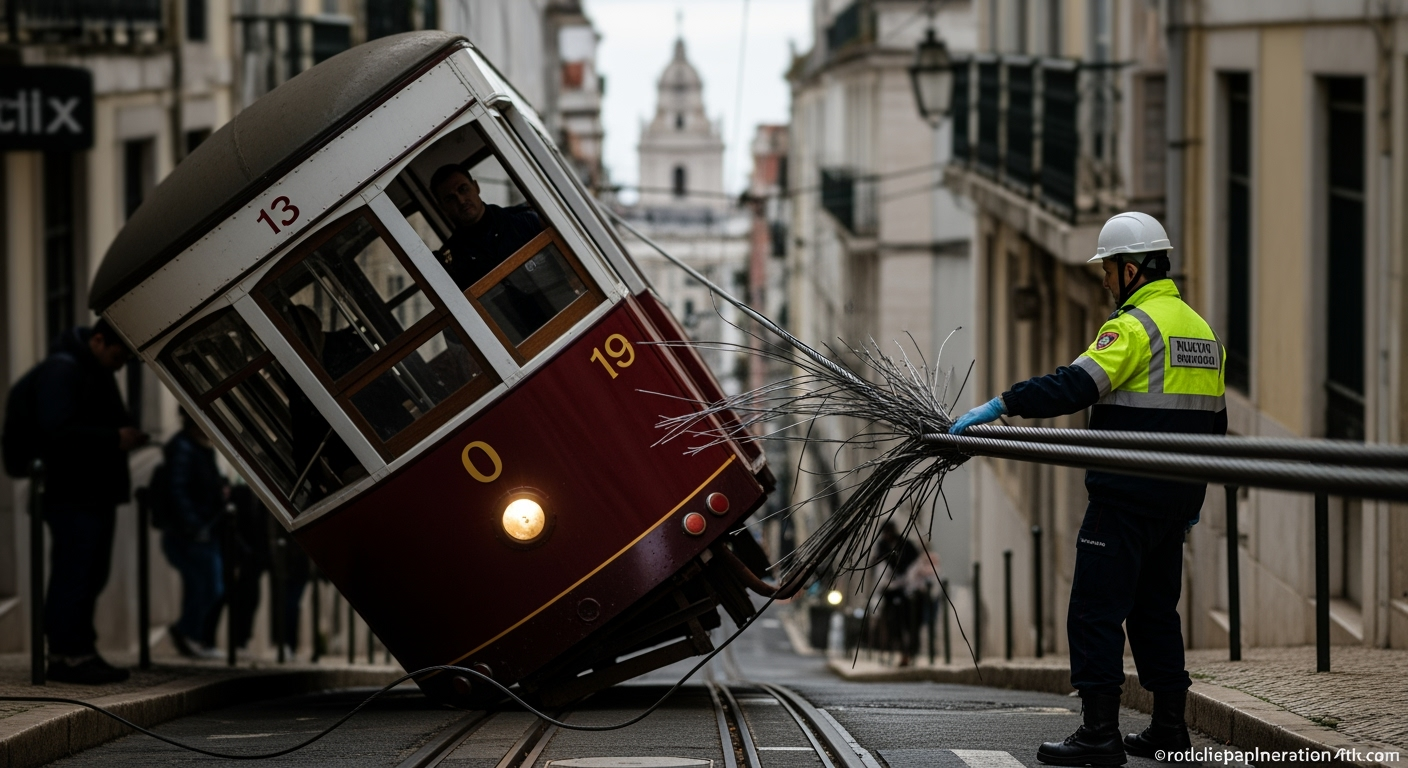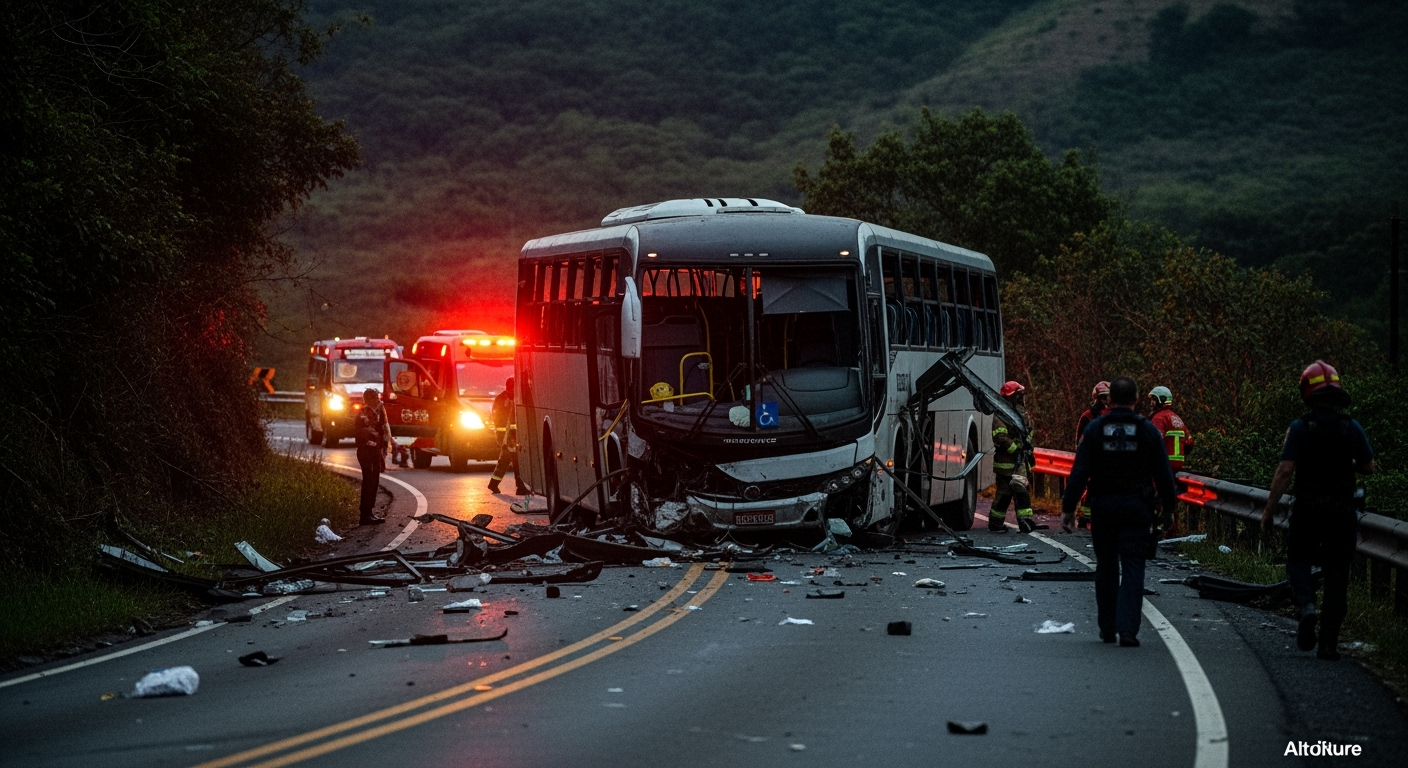Related Articles

Brazil Greenlights Offshore Oil Drilling Near Amazon Mouth Amid Environmental Outcry

Historic White House East Wing Demolition Underway for New Ballroom





A devastating bus accident in Brazil's northeastern state of Pernambuco has resulted in the deaths of at least 17 people and left an unknown number injured, according to local authorities. The catastrophic incident, which occurred late Friday, October 17, has cast a somber pall over the region and reignited urgent discussions about the persistent dangers on Brazil's expansive road network. The precise circumstances leading to the tragedy remain under investigation, but initial reports point to the driver losing control of the vehicle, which was carrying approximately 30 passengers.
The fatal crash unfolded on Friday night, October 17, in the municipality of Saloá, within the state of Pernambuco. The passenger bus, which had embarked on its journey from the neighboring state of Bahia, was reportedly en route to either the city of Brumado in Bahia or Santa Cruz do Capibaribe in Pernambuco when disaster struck. Police reports indicate that the driver lost control of the vehicle, which then veered into the opposite lane, collided with rocks on the roadside, and subsequently returned to its correct lane before crashing into a sand embankment. The impact caused the bus to overturn, resulting in widespread devastation and loss of life.
Among the 30 individuals on board, at least 17 fatalities have been confirmed, although some initial reports cited 15 deaths, including 11 women and four men. The number of injured passengers transported to nearby hospitals was not immediately disclosed by authorities. Eyewitness accounts and initial assessments suggested that some passengers might have been ejected from the bus during the violent overturning, highlighting the extreme force of the collision. Rescue teams, including firefighters and emergency medical personnel, were quickly dispatched to the scene, working through the night to extract victims and provide critical aid amidst the wreckage.
Authorities have launched a comprehensive investigation to determine the exact cause of the crash. Preliminary information from the Federal Highway Police suggests the driver initially lost control of the bus. While the driver reportedly suffered only minor injuries and tested negative for alcohol, some initial evidence, based on the driver's account, has pointed towards potential brake failure as a contributing factor. Investigators will examine the vehicle's maintenance records, the condition of the road, and other environmental factors that may have played a role in the tragic event. The area of the accident is known for its challenging terrain, and such detailed scrutiny is crucial to understanding the sequence of events that led to the bus overturning.
The investigation will encompass a thorough forensic examination of the bus and the crash site. Experts will analyze tire marks, vehicle damage, and other physical evidence to reconstruct the incident. Understanding whether mechanical failure, human error, or a combination of factors was primarily responsible is paramount for preventing similar future tragedies. The absence of immediate clarity on the cause underscores the complexity of highway accidents, often involving multiple variables that must be meticulously assessed.
The news of the accident sent shockwaves through the communities of Pernambuco and Bahia. Governor Jerônimo Teixeira of Bahia expressed profound grief, stating his administration was providing full support for rescue efforts and the critical process of identifying the victims. He conveyed his sincere condolences to the families and friends of those affected, assuring them of governmental assistance during this immensely difficult period. Local hospitals have been inundated with the injured, mobilizing their resources to provide urgent medical care. The human toll extends beyond the immediate fatalities and injuries, encompassing the psychological trauma inflicted upon survivors, first responders, and the wider community grappling with the sudden loss of loved ones.
Community leaders and religious figures have called for unity and support for the grieving families. Many passengers on such routes are often traveling for work, to visit family, or for other essential purposes, making the impact of such a tragedy deeply personal and far-reaching. Memorials and vigils are anticipated as communities seek ways to process their grief and honor the memory of those lost. The incident serves as a stark reminder of the vulnerability faced by travelers on intercity routes and the need for robust safety measures to protect public transport users.
This latest bus crash tragically highlights Brazil's persistent and alarming struggle with road safety. The country has one of the highest road traffic death rates globally, with an estimated 15.7 deaths per 100,000 people in 2021, significantly higher than many other nations in the region. According to Brazil's Ministry of Transportation, more than 10,000 people lost their lives in traffic accidents in 2024 alone, underscoring the scale of this national crisis. The government has set an ambitious goal to halve the number of road fatalities by the end of the decade, aiming to save an estimated 86,000 lives between 2021 and 2030.
The incident in Pernambuco is not an isolated event but rather one in a series of devastating bus accidents across Brazil in recent years. In December 2024, a collision between a bus and a truck in Minas Gerais state resulted in the deaths of at least 38 people. Just a few months prior, in February 2025, 12 university students were killed when their bus collided with a truck in São Paulo state. Another accident in April 2025 saw 11 people, including two children, perish when a passenger bus overturned in southeastern Brazil. These recurring tragedies point to systemic issues, including challenges in vehicle maintenance, driver training and fatigue management, road infrastructure quality, and regulatory enforcement.
The tragic loss of at least 17 lives in Pernambuco underscores the critical need for a renewed, concerted effort to enhance road safety across Brazil. While investigations into the specific cause of this accident continue, the broader context of frequent and deadly incidents demands urgent attention from policymakers, transport operators, and enforcement agencies. Improving infrastructure, rigorously enforcing safety regulations, implementing advanced vehicle safety technologies, and ensuring comprehensive driver training and rest periods are all vital components of any effective strategy to reduce the alarming number of fatalities on Brazil's roads. The human cost of these accidents is immeasurable, and each tragedy serves as a solemn reminder of the lives cut short and the families left to mourn. As the nation grieves, there is a collective hope that this latest disaster will catalyze meaningful and lasting change, preventing future such devastating losses.